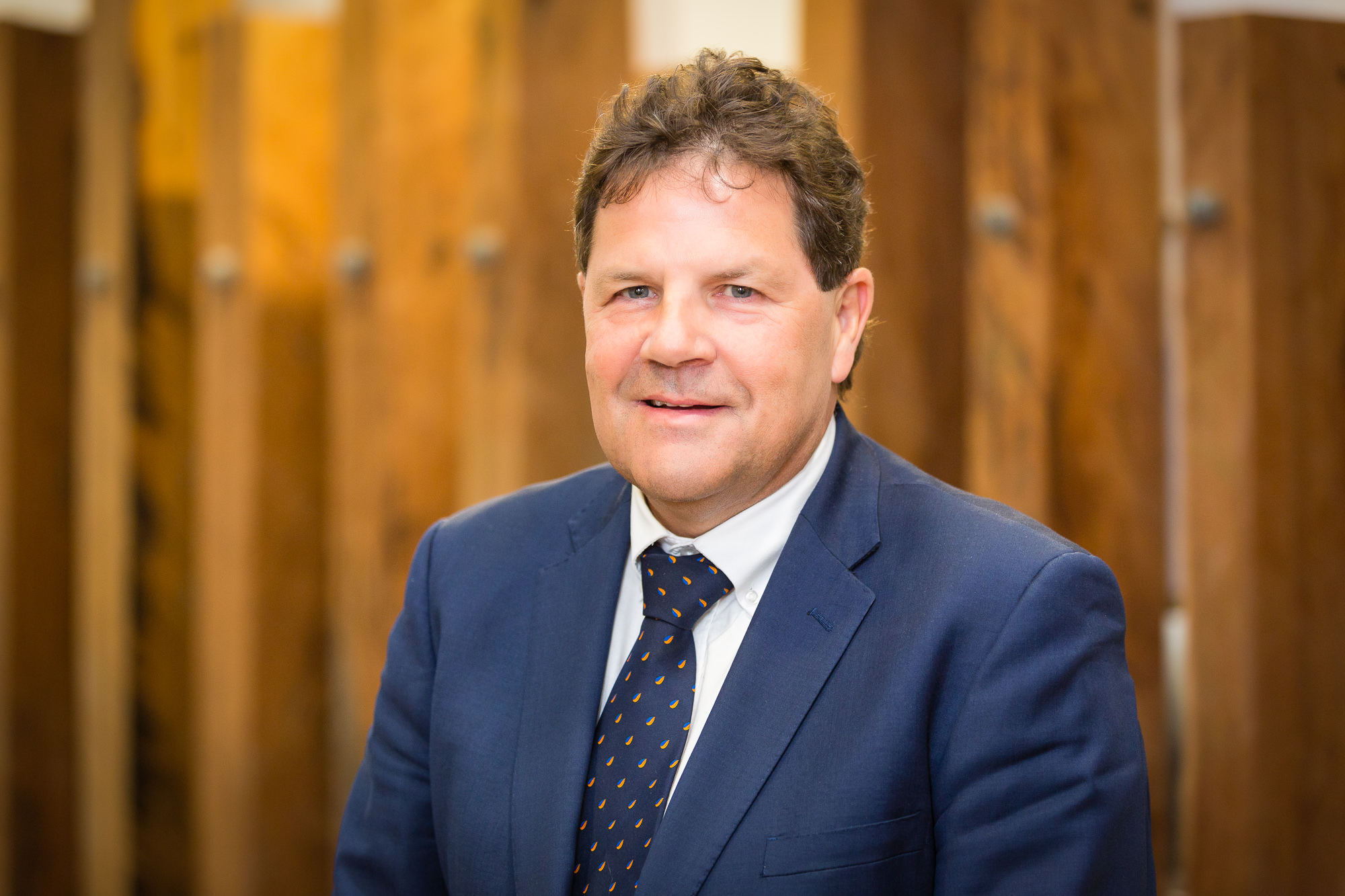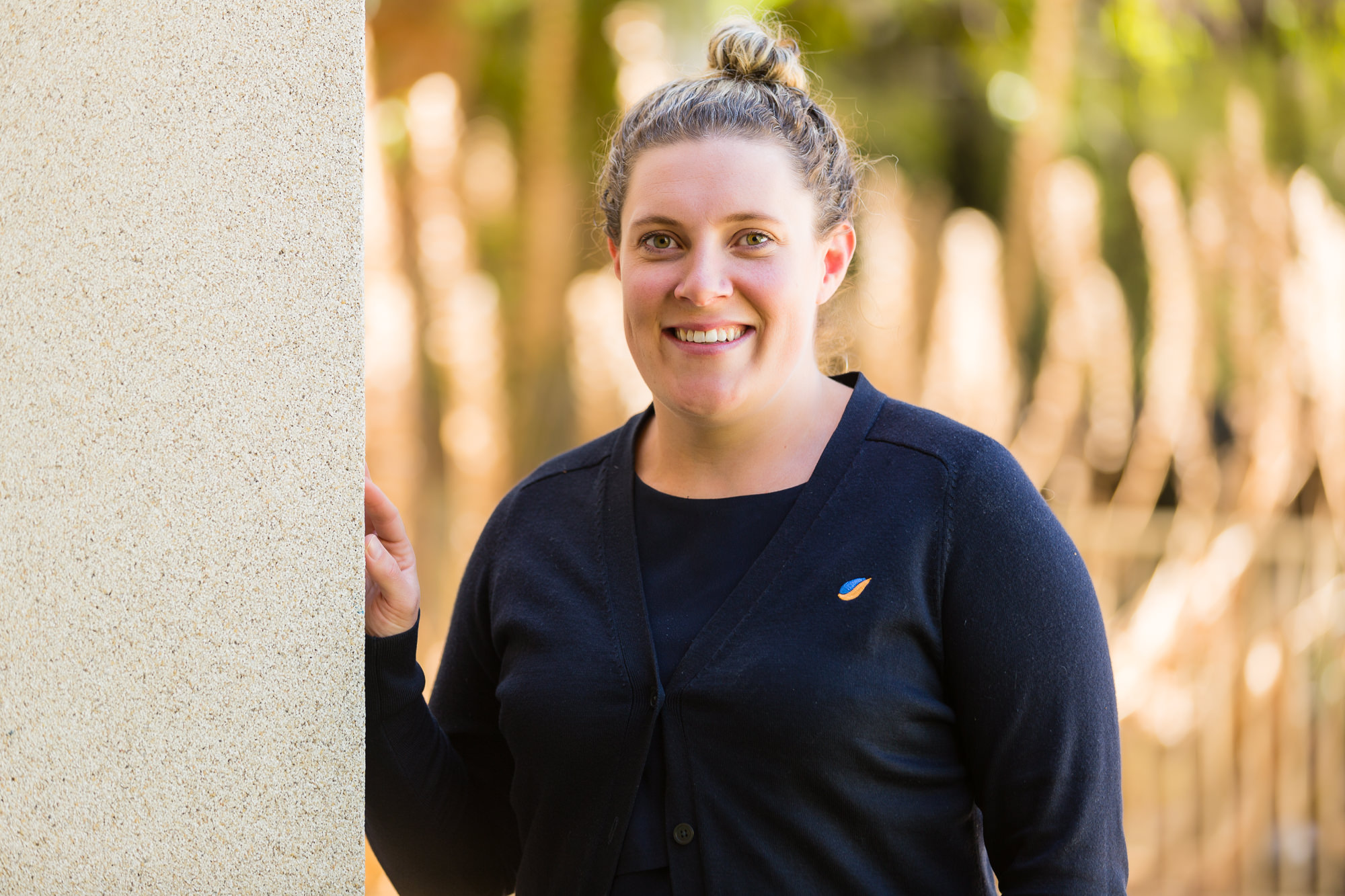We believe climate change poses a great threat to our water supply, our environment and our way of life. That's why we're taking a proactive approach in our policies regarding climate change. We're reducing our environmental impact, adapting to the climate future and working toward a regional response.
Our Sustainability Strategy is an important part of our response to climate change. The report details our sustainability objectives and how we hope to achieve these goals.
Read our Sustainability Strategy for more details on how we're planning for climate change at GWMWater.
Reducing our environmental footprint
We're committed to reducing our environmental footprint and are working to minimise greenhouse gas emissions for our organisation. We've been working toward a reduced environmental footprint for a long time and have a number of programs in place to help us achieve this goal.
When approaching our emissions...We use the EPA's Carbon management at work plan to assess each situation:
1. AvoidCan we avoid generating emissions?
2. ReduceCan we change our activities to reduce emissions?
3. SwitchCan we switch energy sources so they are less greenhouse-intensive? |
So far we've managed to achieve zero emissions for our vehicle fleet, offices and depots.
- Our large vehicle fleet covers a lot a kilometres across a service area almost the size of Tasmania! To reduce fuel consumption we've focused on fuel-efficient driving, among other measures.
- GWMWater offices and depots are avoiding and reducing emissions by installing energy-saving measures such as solar panels and more efficient lighting, and turning things off when not in use.
- We have also purchased carbon offsets to achieve zero emissions. The purchase goes toward a reduction of 1 tonne in greenhouse gases.
Adapting to the future - a regional response
Our most significant adaptation project has been the Wimmera Mallee Pipeline Project. This large-scale project replaced 17,500 km of inefficient open irrigation channels with 9,159 km of pipeline. This initiative has guaranteed a more secure water supply for rural and urban residents and delivered water to recreational lakes and the environment. The pipeline is a part of our strategy to adapt to a changing climate which will likely see increases in extreme conditions such as drought.
But there's still work to be done! Even now we're working toward long-term solutions with our Water Supply Demand Strategy. The Strategy will ensure that we're assessing long-term water supply and demand under a range of possible future climate scenarios. It considers a range of factors that influence customer demands as well as the impact of climate on available supply. Our planning and action in these areas is also linked with the Victorian Government's Western Region Sustainable Water Strategy. This strategy forecasts and plans for future drought and the uncertainty of climate change.
Further information...
The Water Supply-Demand Strategy (WSDS) is a plan to assess long term water demands against supply inflows under a range of future climate scenarios.
Western Region Sustainable Water Strategy The Western Region Sustainable Water Strategy maps out our region's water resources and the challenges and opportunities facing water users over the next 50 years.
|
Our experienced Executive Management Team brings a wealth of experience, diversity and innovation to GWMWater.
The Executive Team ensures the smooth day-to-day operation of GWMWater, as well as implementing strategic direction as determined by the board. They're responsible for managing key business areas such as stakeholder management, finances, service delivery and infrastructure. Leading our dedicated and expert staff, the Executive Team ensures that GWMWater maintains its reputation as an outstanding water corporation.

Mark Williams
Managing Director
Mark has been with GWMWater and the former Grampians Water since 1996. Mark was Chief Financial Officer until November 2011 when appointed to the position of Managing Director. In this time Mark has been responsible for overseeing the commercial implementation of water reforms in the region that include the delivery of water quality upgrades, investments that have improved water security and the introduction of independent service and price regulation by the Essential Services Commission.
Mark brings a wealth of experience to the role beyond his water industry experience which includes roles in the power industry, health and public service where he started his career in 1985. Mark served on the Wimmera Health Care Group Board from 2001 to 2016 and held the office of President in the period 2011 to 2016.
During 2017 Mark joined the Wimmera Southern Mallee Regional Partnership, established by the Victorian government in 2016, to recognise that local communities are in the best position to understand the challenges and opportunities faced by their region. Mark served as a director on the reconstituted Wimmera Southern Mallee Development Board until November 2024 as it transitioned its older model under the Wimmera Development Association.
Mark is also a Director of the Board of the Horsham Golf Club in the capacity of Treasurer. Mark joined the Golf Club Board in 2017 and has assisted with the return of the club to a sustainable financial position.

Adele Rohde
Executive Manager Customer and Employee Experience
Adele joined GWMWater in 2019 with a background in communications and marketing for the community service sector. Adele’s role oversees communications and engagement, people and culture and customer service.

Sally Marshall, CPA
Executive Manager Strategic Planning and Performance
Sally commenced work with GWMWater in 2006 and has a strong background in finance and technology fields.
Sally is our chief finance officer who is responsible for providing strategic leadership and direction in organisational performance planning, reporting and all financial management activities.

Michael Schneider
Executive Manager Service Delivery
Michael joined GWMWater in 2017 and has eight years experience in the water industry.
Michael's role is responsible for management of all operational aspects of the business including the supply of drinking water, wastewater services and rural pipelines. This includes our SCADA and Operations Management Centre.

Nick Mumford
Executive Manager Infrastructure
Nick joined GWMWater in 2017 with a background in Engineering and Project Management. He has 11 years' experience in the water sector and is responsible for strategic leadership of Asset Management, Water Regulation, Infrastructure Planning and Project Delivery activities.
With over 160 employees, GWMWater is one of the largest organisations in the region. As a service provider and resource manager we have a wide range of functions and responsibilities. A strong and efficient organisational structure is integral to our ongoing success.
GWMWater is currently headed by our Managing Director, Mark Williams. He is assisted by the board and the executive management team, both of which he is a part of.
Executive Management Team
Our experienced Executive Management Team brings a wealth of experience, diversity and innovation to GWMWater.
The Executive Team ensures the smooth day-to-day operation of GWMWater, as well as implementing strategic direction as determined by the board. They're responsible for managing key business areas such as stakeholder management, finances, service delivery and infrastructure. Leading our dedicated and expert staff, the Executive Team ensures that GWMWater maintains its reputation as an outstanding water corporation.
Meet our Executive Management Team
The Board
The GWMWater Board is diverse and multi-faceted, with men and women from all different working and educational backgrounds. Our Board is skills-based and appointed by the Minister. It represents the varied interests of the Grampians Wimmera Mallee region.
The Board is responsible for GWMWater's management in a number of areas. The Board's central purpose is to set the broad strategy and objectives of GWMWater. In doing this, the Board also has responsibility for risk management, organisational efficiencies and compliance, reporting and reviewing.
There are also four standing committees of the Board:
- Environment and Works Committee
- Audit Governance and Risk Committee
- Water Resources Committee
- Remuneration Committee
About usGWMWater is a government-owned statutory corporation established in 2004 with a responsibility to provide, manage, operate and protect water supply and sewerage systems for our community. |
In the interests of the environment, the community and fairness, it's important for people to follow the rules regarding taking and using groundwater.
Most water users are responsible and follow the conditions of their water licence. However, each year a small number of people break the law when they 'take and use' groundwater from an aquifer. They may take water without an entitlement or licence, build an illegal bore or interfere with a water meter. Sometimes these offences are deliberate, and sometimes they're because people aren't aware of the law.
It's your responsibility to know and abide by the law
Many people taking and using groundwater illegally may not realise they're doing so. It's essential that you, as a groundwater user, understand your rights and obligations concerning our water resources.
If you take and use water from a bore, check your water entitlement (licence) to make sure you understand what you're allowed to do. If you're unsure, contact us! We can help you find out if you need to alter your entitlement agreement.
What happens if I'm caught doing the wrong thing?
Minor preliminary sanctions may include verbal and written warnings. More serious or persistent offenders may be pursued in court. We're here to help you understand your rights and entitlements, so please get in touch if you're unsure.
What should I do if I think someone is doing the wrong thing?
We encourage anyone who suspects a breach of the Water Act to contact us.
Are you breaking the law? Think about it!
Your licence allows you to use water in certain ways, make sure you abide by those conditions. This may also include restrictions of how much you can use when water is in short supply.
An example of unlawful water use may be taking water from a stock and domestic bore (not metered) to irrigate a small commercial crop. In this case, you are breaking the law and need to speak to us about obtaining a commercial use licence. Stock and domestic water can only be used for household and stock watering purposes.
The Water Act 1989
The laws concerning rural water use are outlined in The Water Act 1989. We understand that reading and understanding long and complex laws isn't an easy thing to do. For this reason, GWMWater is involved in a project to make these laws more accessible. The Water Compliance Project has been developed so that customers can better understand the rules around the use of rural water.
Compliance and Enforcement Strategy
Water is a precious and limited resource. It is critical to our economy, environment and communities. This is why water needs to be managed fairly for all water users. To ensure fair and equitable access to the region's water supply for our customers, communities and the environment, we administer a risk-based approach to our compliance and enforcement activities, ensuring they are conducted in a responsive, open, accountable and consistent manner.
To find out more see our ![]() Compliance and Enforcement Strategy
Compliance and Enforcement Strategy
Further information...
Groundwater is an essential resource for our community, especially in the western parts of the region.
Apply for a 'take and use' groundwater licence To use groundwater for irrigation or other commercial purposes, you must have a ‘take and use’ licence. |
In the interests of the environment, the community and fairness, it's important for people to follow the rules regarding taking and using surface water.
Most water users are responsible and follow the conditions of their water licence. However, each year a small number of people break the law when they 'take and use' water from a dam, stream, river, creek or irrigation channel. They may take water without an entitlement or licence, build an illegal dam or interfere with a water meter. Sometimes these offences are deliberate, and sometimes they're because people aren't aware of the law.
It's your responsibility to know and abide by the law
Many people taking and using surface water illegally may not realise they're doing so. It's essential that you, as a surface water user, understand your rights and obligations concerning our water resources.
If you take and use water from sources such as a dam, stream, river, creek, or irrigation channel, check your water entitlement (licence) to make sure you understand what you're allowed to do. If you're unsure, contact us! We can help you find out if you need to alter your entitlement.
What happens if I'm caught doing the wrong thing?
Minor preliminary sanctions may include verbal and written warnings. More serious or persistent offenders may be pursued in court. We're here to help you understand your rights and entitlements, so please get in touch if you're unsure.
What should I do if I think someone is doing the wrong thing?
We encourage anyone who suspects a breach of the Water Act to contact us.
Are you breaking the law? Think about it!
You're probably not a masked robber running off into the night with a drum of water. However, common instances of taking water illegally revolve around misuse. Your licence allows you to use water in certain ways, make sure you abide by those conditions! This may also include restrictions of how much you can use when water is in short supply.
An example of unlawful water use may be taking water from a stock and domestic dam to irrigate a small commercial crop. In this case, you are breaking the law and need to speak to us about obtaining a commercial use licence. Stock and domestic water can only be used for household and stock watering purposes.
The Water Act 1989
The laws concerning surface water use are outlined in The Water Act 1989. We understand that reading and understanding long and complex laws isn't an easy thing to do. For this reason, GWMWater is involved in a project to make these laws more accessible. The Water Compliance Project has been developed so that customers can better understand the rules around the use of surface water.
Compliance and Enforcement Strategy
Water is a precious and limited resource. It is critical to our economy, environment and communities. This is why water needs to be managed fairly for all water users. To ensure fair and equitable access to the region's water supply for our customers, communities and the environment, we administer a risk-based approach to our compliance and enforcement activities, ensuring they are conducted in a responsive, open, accountable and consistent manner.
To find out more see our ![]() Compliance and Enforcement Strategy
Compliance and Enforcement Strategy
Further information...Apply for a 'take and use' surface water licence Depending where you’re located in our region, you may be eligible to apply to harvest and use surface water, including from streams, rivers, creeks and catchment dams. |
Page 22 of 35

